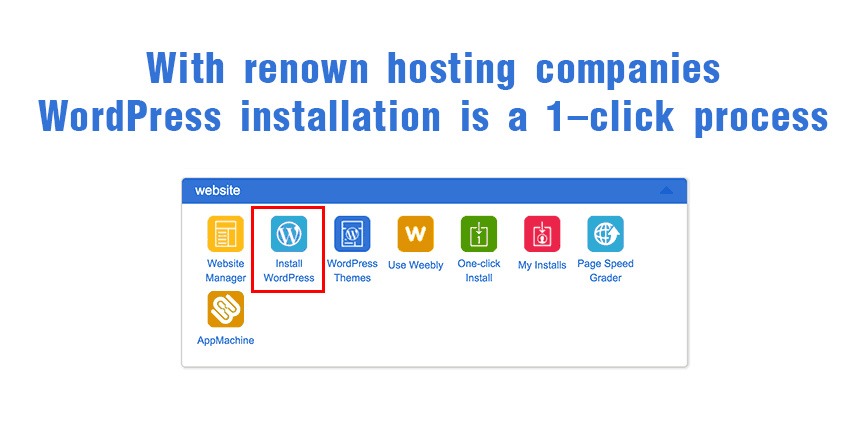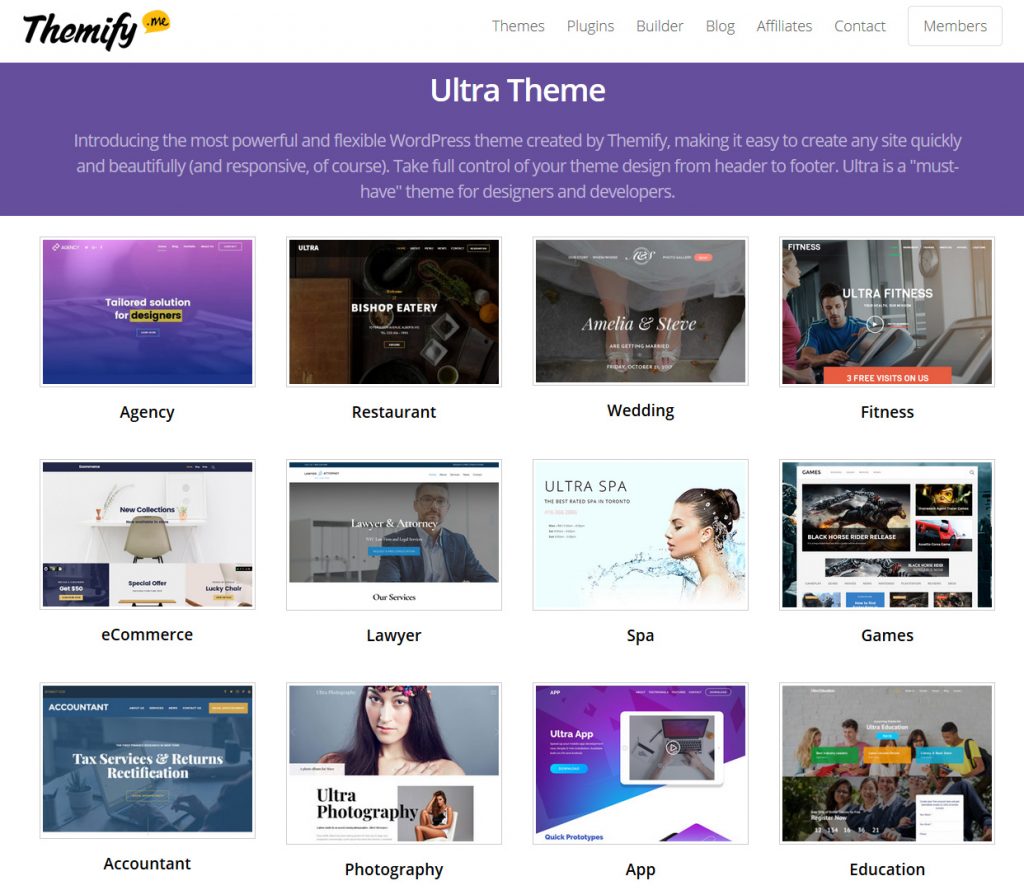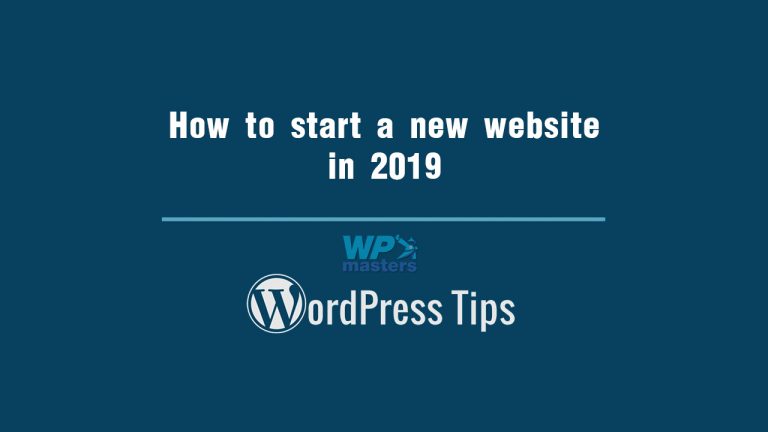It is that time of the year when we can fondly reflect on the year behind us, while we start to execute plans we have been preparing for the new year. For many of us, it would be starting a new website.
When starting a WordPress website, even if it is not your first website, you may find a few great tips and hints in this guide.
- Register a domain name
- Get a hosting plan
- Install WordPress
- Plan a sitemap
- Install a template (WordPress theme)
- Install plugins that will help you make the website
- Create individual website pages
- Test and Publish your website
Register a domain name
Much can be said for the process of choosing a domain name. Key important things you should keep in mind is that the domain name should be short as possible (one word ideally), memorable, catchy and related to your branding albeit you are making a personal, product or company website.
Avoid any similarities with trademarks and if possible trademark your own website domain after registration, for trademark infringement protection purposes.
Get a hosting plan
Choosing a good, reliable and secure hosting company is imperative. Getting the right hosting plan can mean success or ruin to your website.
In a different article, you may find a few recommendations for a hosting company, while we can discuss a few aspects of hosting.
- A new website owner may want a hosting that includes free domain registration to cut costs because your website will not bring in a profit from day one.
- Webshop owners must get a hosting that includes an SSL certificate for customer protection purposes, and again, there are some hosting offers that provide a free SSL included. Personally, I would not leave my private information (credit card number, address … etc.) on a website that does not have an SSL.
- A seasoned website owner that can develop website quickly and attract high visitor traffic should aim for hosting plan with unlimited bandwidth that will scale with visitor peak hours, to overcome a possible bandwidth bottleneck.
Install WordPress
If you intend to develop your website using WordPress then you might as well get a hosting plan with 1-click WordPress installation to save you some time, but if you ask me you should get Managed WordPress Hosting.
The main benefit with managed hosting is that the basic operation of your website is managed by expert staff provided by the hosting company and if you have any issues with WordPress the staff can help you.

Plan a sitemap
It may seem redundant, but it is very helpful to plan your sitemap before you actually start making website pages. Planning your sitemap and individual pages content will save you time that you would lose shifting content from one page to another in the process of making pages.
With so many websites active on the internet, what you should do is take a look at the sitemap of a few relevant websites in the same business as you, and considering their design make an improved sitemap for your website.
Install a template (WordPress theme)
WordPress as a CMS (content-management-system) has thousands of ready-to-go website themes and templates that it makes obsolete developing a website theme from zero.
Instead, choose one that is free but offers sufficient features so that you can develop your website.
Free themes also have paid versions that provide additional functionality so be sure to take a look at what these upgraded versions offer too. Some of my personal favorite free and paid themes are with Themify, renown WordPress creators with a very large customer audience.
Take note that WordPress as a platform is constantly evolving and changing. The theme you choose must be one that is still actively developed by the maker and is receiving frequent updates. Abandoned themes will possess weak points and holes that can be exploited by hackers and malware so it would be best to avoid them.
Install plugins that will help you make the website
Plugins are what makes WordPress appealing to professionals as well as amateur website developers. With plugins, you can expand further your website functionality and speed-up the development process significantly.
However, as with themes, steer clear of abandoned, old plugins that can expose vulnerabilities in your website to hackers and malware. Additionally, do not go ham and install every single WordPress plugin that you think might be useful because plugins run scripts that can severely slow your website.

Create individual website pages
Instead of opting for a one-page-website, make a clear and well-formated website. Individual pages must not be cluttered with media, video or text content. Too many images per single page can have a negative effect on your page loading speed and ensure SEO penalties.
Test and Publish your website
Before publishing, every page can be saved as a draft and tested in a preview mode. This will help you ascertain the visual presentation of pages as well as test functionality with any plugins, forms or add-ons that are running on a specific page.
Publish a page only after it is completely done and ready with full functionality enabled for the visitor.
Few final thoughts and recommendations
The important part of developing a website is that you have the desire to make a website that will provide more than the competition. Recent website developer conferences have pointed out that search engines will be focused on the informational and educational aspect of websites relevant to their niche.
This means that if you provide content that is relevant to your business or industry and provides high informational value, then you will add more to your website search ranking.
The number of websites on the internet is growing every day, but that should not discourage you from developing your own website.

